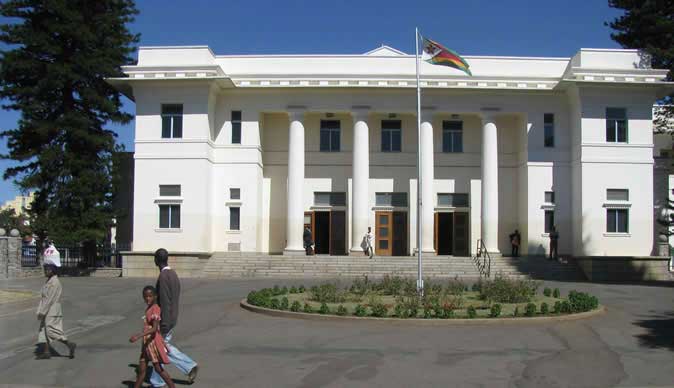
Bulawayo City Council has revealed that it is not in control of water sources, making it difficult for them to manage the resource and improve supplies to ratepayers.
BY SILAS NKALA
Speaking at an Alpha Media Holdings Conversations indaba in Bulawayo last week, acting town clerk Sikhangele Zhou said the local authority was facing challenges in supplying the city with adequate water because the local authority did not control water sources.
“Other presenters have bemoaned the state of water in the City of Bulawayo. We do not control the raw water systems because of the legislation in the country,” she said.
“Raw water sources are controlled by central government through the Ministry of Water and the Zimbabwe National Water Authority (Zinwa). So we cannot build dams, but we have not sat down, we continued to make noise and appreciate the noise you make elsewhere on behalf of the city for the building of the raw water sources.”
Zhou said they were continuing to collaborate and participate in the initiatives being made to construct raw water sources. She said they were assisting in the construction of the Gwayi/Shangani Dam.
“I think the much talked about Zambezi Water Projects initial plans which are still valid today were done by the city then. Of course, none of us were here because they were done in 1912, but we continue to support those initiatives and try to work with those who are trying to provide us with row water,” she said.
She said support initiatives like the construction of Grassroots Dam and can benefit from the project as well.
- Chamisa under fire over US$120K donation
- Mavhunga puts DeMbare into Chibuku quarterfinals
- Pension funds bet on Cabora Bassa oilfields
- Councils defy govt fire tender directive
Keep Reading
She said the Khami Dam does not supply the city with water due to historical and political issues.
“We have Khami Dam which has been lying idle for quite some time. The people of Bulawayo, maybe because of other historic and political happenings, do not want to use that water, they are not enthusiastic about the use of that water,” she said.
“But we have found out that it can be used and we are in agreement with the power company Zimbabwe Electricity Supply Authority to draw that water, recycle it, purify it and some of our treatment works be fed into the Khami water. Our southern areas will pour into the Khami water. That water will be used for electricity generation, it won’t come into the drinking water system.”
She said the water would be used for electricity generation and not for drinking.
Zhou said previously the city, like many other local authorities, suffered a serious setback when the central government wrote off water bills, but did not consider writing off bills owed to service providers by councils and municipalities. She said the government wrote off water bills, but did not write off Zinwa raw water bills and electricity bills which the council pays to the utilities.











